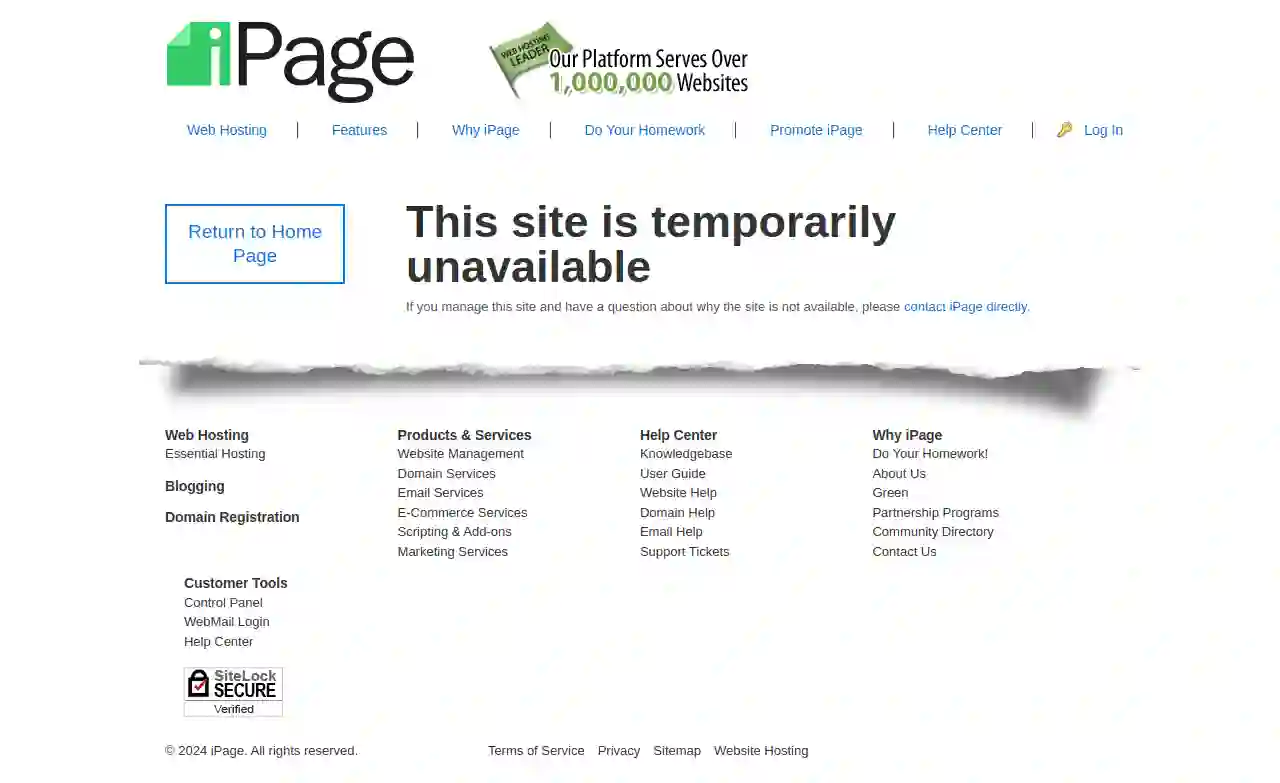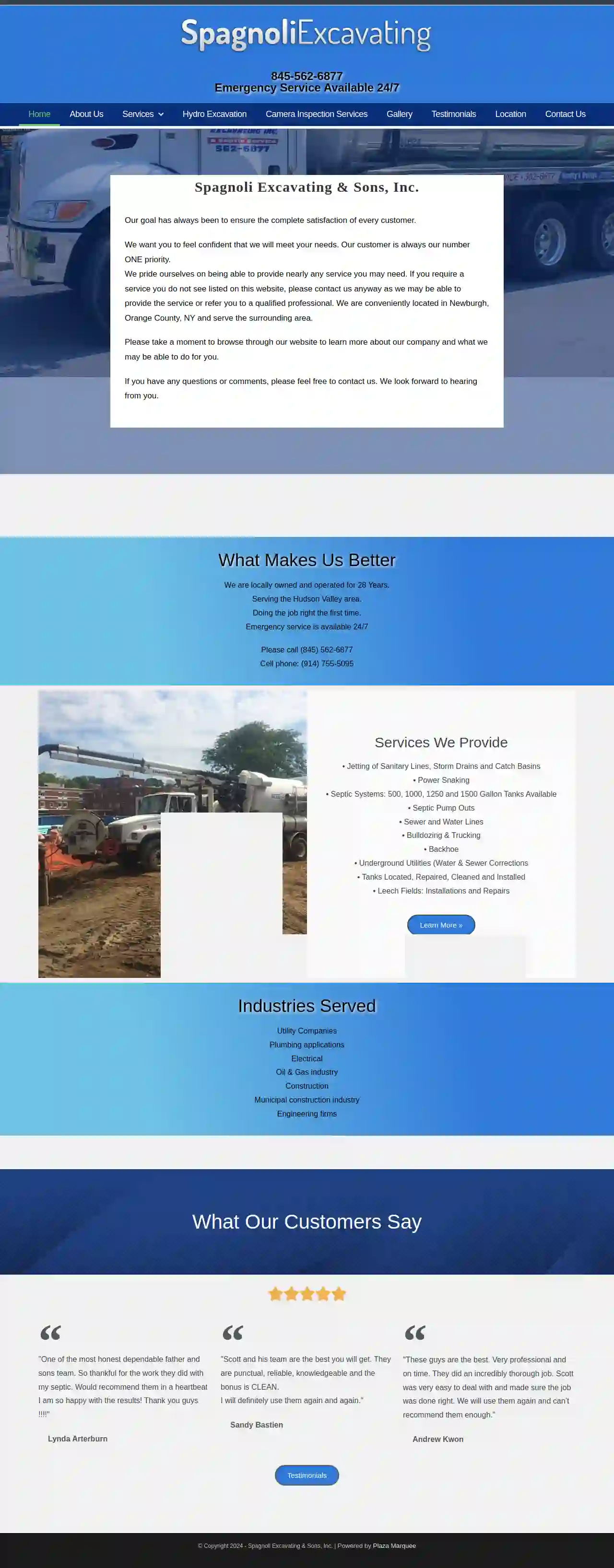Demolition Contractors Harris Hill
Find the best Demolition Contractor in Harris Hill
Get 3 FREE Demo Contractor quotes for your project today! Compare profiles, reviews, accreditations, portfolio, etc... and choose the best deal.

Lehigh Construction Group, Inc.
4.26 reviews4327 S Taylor Road, Orchard Park, 14127, USProviding a full array of Construction, Maintenance and Repair Services to meet Client Construction Needs. A trusted commercial general contractor for Buffalo and WNY delivering construction services with two mainstay principles in mind: WORK HARD and TREAT PEOPLE RIGHT. Our team lives by these principles as we strive to deliver the best customer experience - safely & on-time. Smarter Solutions Providing clients with customized construction building services & emphasizing speed-to-market in an environment of trust, collaboration, and transparency for 40 years. Lehigh Project Building Repairs & Maintenance Lehigh PRO service vans are equipped to handle any small construction job. Lehigh PRO performs thousands of building repairs and facility maintenance jobs as one of Buffalo's trusted building repair and facility maintenance providers. Lehigh Pro Emergency Repairs Lehigh PRO emergency repair services provide quick-response maintenance & repair options. As general contractors, PRO crews take steps to ensure work is completed in a safe and timely manner. Lehigh Industrial Services Industrial Plant Small Construction The Lehigh Industrial Services team is fully equipped to handle any plant construction job and our industrial experience with concrete, steel & metal, masonry and sitework sets us apart. Customers include industrial manufacturing plants, chemical, pharmaceutical, agri-business and warehouse & distribution. Get to Know Lehigh Safety Safety is a Lehigh Core Value. Our philosophy remains unchanged – send everyone home safely to their family every day. We remain on the cutting edge of construction industry safety standards and practices by maintaining our commitment to training and educating employees so they perform in the safest manner possible. History Lehigh Construction Group, Inc. was founded in 1984 by Dave Knauss and Tom Glomb as commercial general contractors for Buffalo and Western New York businesses. Over 40 years later we have grown into one of Buffalo’s most trusted commercial general contractors, offering a full array of commercial construction services. From small scale building maintenance repairs to new-builds & plant additions, Lehigh provides expertise in all aspects of construction. Let us be your commercial general contractor.
- Services
- Why Us?
- Gallery
Get Quote
Ground Control Excavating Inc.
3.73 reviewsWarwick, USComplete Site Development, Excavation, & More… We provide complete land and site development services for projects of all sizes, including government, commercial, public, private, emergency, and residential projects. Ground Control Excavating, Inc. offers complete excavation services for residential and commercial projects. A premiere land-site excavating contractor, as well as, first-responder for emergencies and natural disasters in the NY area, we are committed to providing the highest level of quality to our customers throughout Orange, Sullivan, Rockland, Westchester counties and the entire Hudson Valley, NY area. GCE is based out of Warwick, NY. We provide complete site development, road development, rock hammering, rock crushing, concrete recycling, underground utilities, septic systems, drainage, top soil, and much more. We service Warwick, Monroe, Middletown, Goshen, Newburgh and the entire Hudson Valley. Experienced Construction Professionals We will work with you to achieve a common goal on time and on budget!
- Services
- Why Us?
- Gallery
Get Quote
Apex Excavating & Construction Services, LLC
517 reviewsClay, USWelcome to Apex Excavating & Construction Services, LLC We are a team of experienced professionals committed to delivering top-quality services to our clients. Our company specializes in excavation, site preparation, and construction services in Greensboro & The Piedmont. We hold an unlimited general contractors license, so we can work on any project, no matter the size and scope. If you want to build ANYTHING, we can help. We may have started in site development, but our customers kept asking if we could build their driveway or help stand up a shed in their yard. So we added construction services to our offerings. We started small and as we grow, we strive to maintain our small company feel. By strategically partnering with skilled tradesmen in North Carolina, we maintain the flexibility of a small business, while being able to scale to meet the demands of big projects. Our mission is simple: To provide our customers with exceptional service, quality workmanship, and a smooth construction experience from start to finish. Whether you’re a homeowner, business owner, or contractor, we are committed to delivering outstanding value and exceeding your expectations in everything we do. We’re Apex Excavating & Construction Services, a family owned and locally operated construction and site development company in Greensboro, NC. We’ve been tearing up the ground and building things in the Piedmont for years, and we’re proud to be a part of the community. We’re committed to providing our customers with the highest quality services at a fair price. We’re also committed to safety, and we take every precaution to ensure that our employees and customers are safe on the job site.
- Services
- Why Us?
- Gallery
Get Quote
Fairhaven Excavation
34 reviewsNew York, USiPage is a leading provider of web hosting and domain names for both home and business users. We offer a wide range of products and services to meet your needs, including essential hosting, blogging, domain registration, website management, domain services, email services, e-commerce services, scripting & add-ons, and marketing services. Our commitment to providing high-quality, reliable services is reflected in our customer satisfaction ratings and our dedication to green initiatives. We are proud to be a trusted partner for businesses and individuals alike.
- Services
- Why Us?
- Gallery
Get Quote
Yankels Demolition
3.713 reviews341A Wallabout St, Brooklyn, 11206, USGold Standard in Demolition and Waste Management We are a licensed, bonded and insured company headquartered in Brooklyn, and serving the Tri State area. Yankel’s received a Buildzoom score of 104, placing us in the top 10th percentile of nearly 80,000 contractors nationwide. Look us up on Buildzoom.com under Atweek, Inc. Also read about us in our recent feature article in the Business Talk section of AMI Magazine. Where we Started YANKEL’S was founded in 1999 by Yehoshua Werzberger with only a small Ford Pick-up truck and a big vision. The Pick-up has since been replaced with an impressive fleet of trucks and mobile machinery; the big vision is still here, as is the personal touch. Having done all the leg work as he started and grew his business, Yehoshua has intimate knowledge of the work involved in every division of the company. Now at the helm of a full- service corporation and running one of the largest waste management facilities in the New York region, Yehoshua is still actively involved in every project. Why Choose Us We hold our customers in the highest regard, and their satisfaction drives every decision we make. Expect personalized attention, responsive communication, and a team that goes the extra mile to understand and fulfill your needs. Highly skilled and experienced professionals who are experts in their field. From project planning to execution, our team’s knowledge and expertise ensures a safe and successful demolition, meeting all necessary regulations and standards. We recognize the importance of delivering prompt results. With an unwavering commitment to efficiency, we execute every demolition with precision and speed, allowing you to move forward with your plans quickly and confidently. Reliability is the cornerstone of our reputation. Count on us to be there when you need us, delivering consistent and dependable services that you can trust. Our experience speaks for itself, and we aim to exceed your expectations every step of the way.
- Services
- Why Us?
- Testimonials
- Gallery
Get Quote
New Bridge Contracting Corp
52 reviews123 Newbridge Ave, Toronto, M4W 2P3, USAbout Newbridge Contracting Inc. Newbridge Contracting Inc. is a reputable and experienced general contracting company serving the Greater Toronto Area. We are dedicated to providing high-quality construction services for both residential and commercial clients. Our team of skilled professionals is committed to delivering projects on time and within budget, while maintaining the highest standards of workmanship. We understand that building or renovating your home or business is a significant investment. That's why we take a personalized approach to every project, working closely with our clients to ensure their vision is realized. From initial planning and design to final construction and completion, we are with you every step of the way. At Newbridge Contracting Inc., we pride ourselves on our commitment to customer satisfaction. We believe in building lasting relationships with our clients, based on trust, transparency, and open communication. We are confident that you will be pleased with the results of your project.
- Services
- Why Us?
Get Quote
Spagnoli Excavating Inc
517 reviews47 South Plank Road, Newburgh, 12550, USSpagnoli Excavating & Sons, Inc. At Spagnoli Excavating & Sons, Inc., our unwavering commitment is to ensure the complete satisfaction of every customer. We strive to provide you with the confidence that your needs will be met, placing our customers as our top priority. We take pride in offering a wide range of services to cater to your diverse requirements. If you need a service not listed on our website, don't hesitate to contact us. We may be able to assist you or refer you to a qualified professional. Conveniently located in Newburgh, Orange County, NY, we serve the surrounding area. Explore our website to learn more about our company and the services we can provide. Feel free to reach out with any questions or comments. We look forward to hearing from you.
- Services
- Why Us?
- Testimonials
- Gallery
Get Quote- Mc
McNeight Excavating
4.824 reviewsBuffalo, USWe are a family-owned and operated excavating company serving the [CITY] area. We have been in business for over 20 years and have a proven track record of providing high-quality services at competitive prices. We specialize in a wide range of excavating services, including site preparation, foundation work, utility installation, and more. We are committed to providing our clients with the highest level of customer service and satisfaction. We are fully insured and bonded, and we use only the latest equipment and technology to ensure that all of our projects are completed on time and within budget. Contact us today for a free estimate.
- Services
- Why Us?
- Gallery
Get Quote 
Santucci Construction
4.812 reviews15 Travis Ln, 15 Travis Lane, Montrose, 10548, USThe Septic system Experts for more than 40 years. Santucci Construction Corp. places expertise and customer care above all else. For more than four decades, our specialists have provided skilled, responsible drainage, excavation and septic system maintenance throughout the Westchester and Putnam Counties area. Request Estimate More About Us How Can We help? The thoroughly experienced team at Santucci Construction is available to personally guide your needs. From property consultations to a full range of septic, drainage, and excavation services, we confidently advise the most innovative and effective enhancements for your unique home. As a family-run business for nearly half a century, our specialists are dedicated to precision, care, and direct customer collaboration.
- Services
- Why Us?
- Testimonials
- Gallery
Get Quote
RND Construction
54 reviewsLocust Grove, Virginia, USServing Fredericksburg, VA & Surrounding Communities for Over 40 Years At RND Construction, we offer top tier excavation, land clearing and commercial construction services. We work diligently to meet our customer’s needs while adhering to industry standards in quality and safety. We are committed to completing our work with diligence and with extreme attention to detail. RND Construction is your top choice when it is time for your next job. Contact us today, our team is waiting to assist you! Expert & Professional Services Here at RND Construction we provide comprehensive services for homeowners and business owners across Fredericksburg, Virginia and the surrounding communities. We are experts in our field and are dedicated to providing superior workmanship and customer support. With over 40 years of professional experience, customer satisfaction is always our top priority.
- Services
- Why Us?
- Testimonials
- Gallery
Get Quote
Over 22,076+ Excavation Businesses on our platform
Our excavation providers operate in Harris Hill and beyond!
ExcavationHQ has curated and vetted Top Excavation Pros in Harris Hill. Find a reliable business today.
Frequently Asked Questions About Demolition Contractors
- Clear the Site: Remove all furniture, appliances, personal belongings, and any valuable items from the structure.
- Secure the Perimeter: Fence off the demolition area to prevent unauthorized access and protect surrounding property.
- Disconnect Utilities: Arrange for the disconnection of electricity, gas, water, and other utilities servicing the building.
- Hazardous Material Abatement: If asbestos, lead paint, or other hazardous materials are present, have them professionally removed before demolition begins.
- Notify Neighbors: Inform your neighbors about the demolition schedule to minimize disruptions and address any concerns.
- Obtain Permits: Ensure all necessary demolition permits are in place before starting work.
- Waste Generation: Demolition generates a large volume of debris, contributing to landfill space and potentially releasing harmful substances into the environment if not disposed of properly.
- Air Pollution: Dust and particulate matter released during demolition can impact air quality, affecting human health and the environment.
- Noise Pollution: Demolition activities can generate significant noise, disturbing nearby residents and wildlife.
- Resource Depletion: Demolition consumes resources that could be salvaged and reused, contributing to resource depletion and environmental degradation.
- Size and Complexity of the Structure: Larger and more complex structures, such as multi-story buildings, require more time, labor, and specialized equipment, increasing costs.
- Type of Demolition: Different demolition methods, such as implosion, wrecking ball, or high-reach demolition, have varying costs.
- Material Disposal: Disposal fees for demolition debris can contribute significantly to the overall cost, depending on the type and quantity of materials.
- Location and Accessibility: Demolition in densely populated areas or with limited access may require more planning and specialized equipment, affecting costs.
- Hazardous Materials: The presence of asbestos, lead paint, or other hazardous materials requires specialized removal and disposal procedures, adding to the expenses.
- Site Security: Secure the demolition site with fencing and warning signs to prevent unauthorized access.
- Personal Protective Equipment (PPE): Workers should wear appropriate PPE, including hard hats, safety glasses, gloves, and steel-toe boots.
- Hazardous Material Removal: Properly identify and remove asbestos, lead paint, or other hazardous materials before demolition begins.
- Utility Disconnections: Disconnect all utilities, such as electricity, gas, and water, before demolition.
- Controlled Demolition Techniques: Employ controlled demolition methods to minimize risks and ensure the structure comes down safely.
- Dust Control: Implement dust suppression measures, such as water spraying or misting, to reduce airborne particles and protect air quality.
- Emergency Planning: Have an emergency plan in place, including communication protocols and evacuation procedures, in case of unforeseen events.
How do I prepare my property for demolition?
What are the environmental impacts of demolition?
How much does demolition cost in the USA?
What are the safety precautions for demolition?
How do I prepare my property for demolition?
- Clear the Site: Remove all furniture, appliances, personal belongings, and any valuable items from the structure.
- Secure the Perimeter: Fence off the demolition area to prevent unauthorized access and protect surrounding property.
- Disconnect Utilities: Arrange for the disconnection of electricity, gas, water, and other utilities servicing the building.
- Hazardous Material Abatement: If asbestos, lead paint, or other hazardous materials are present, have them professionally removed before demolition begins.
- Notify Neighbors: Inform your neighbors about the demolition schedule to minimize disruptions and address any concerns.
- Obtain Permits: Ensure all necessary demolition permits are in place before starting work.
What are the environmental impacts of demolition?
- Waste Generation: Demolition generates a large volume of debris, contributing to landfill space and potentially releasing harmful substances into the environment if not disposed of properly.
- Air Pollution: Dust and particulate matter released during demolition can impact air quality, affecting human health and the environment.
- Noise Pollution: Demolition activities can generate significant noise, disturbing nearby residents and wildlife.
- Resource Depletion: Demolition consumes resources that could be salvaged and reused, contributing to resource depletion and environmental degradation.
How much does demolition cost in the USA?
- Size and Complexity of the Structure: Larger and more complex structures, such as multi-story buildings, require more time, labor, and specialized equipment, increasing costs.
- Type of Demolition: Different demolition methods, such as implosion, wrecking ball, or high-reach demolition, have varying costs.
- Material Disposal: Disposal fees for demolition debris can contribute significantly to the overall cost, depending on the type and quantity of materials.
- Location and Accessibility: Demolition in densely populated areas or with limited access may require more planning and specialized equipment, affecting costs.
- Hazardous Materials: The presence of asbestos, lead paint, or other hazardous materials requires specialized removal and disposal procedures, adding to the expenses.
What are the safety precautions for demolition?
- Site Security: Secure the demolition site with fencing and warning signs to prevent unauthorized access.
- Personal Protective Equipment (PPE): Workers should wear appropriate PPE, including hard hats, safety glasses, gloves, and steel-toe boots.
- Hazardous Material Removal: Properly identify and remove asbestos, lead paint, or other hazardous materials before demolition begins.
- Utility Disconnections: Disconnect all utilities, such as electricity, gas, and water, before demolition.
- Controlled Demolition Techniques: Employ controlled demolition methods to minimize risks and ensure the structure comes down safely.
- Dust Control: Implement dust suppression measures, such as water spraying or misting, to reduce airborne particles and protect air quality.
- Emergency Planning: Have an emergency plan in place, including communication protocols and evacuation procedures, in case of unforeseen events.